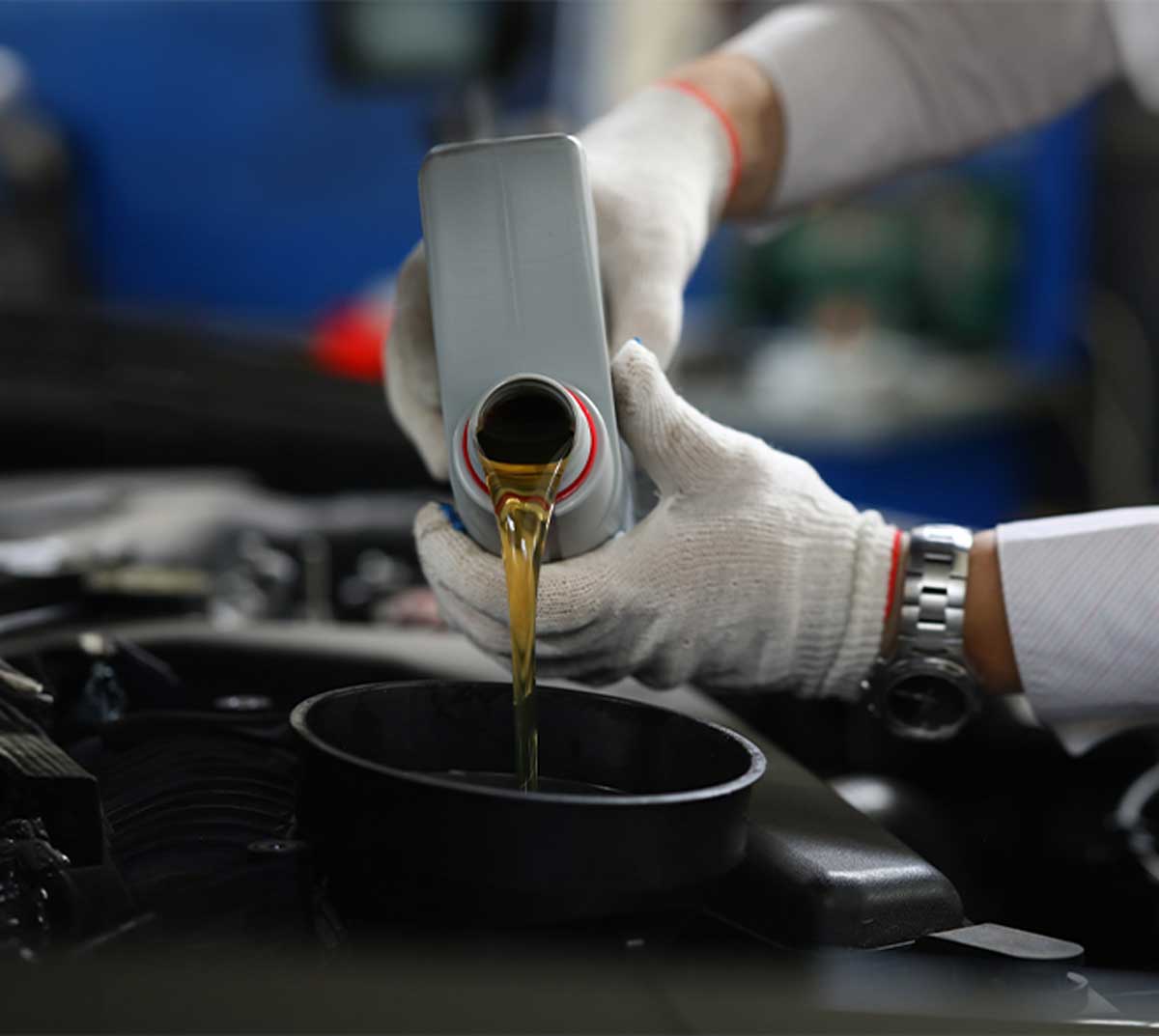How To Know It’s Time for An Oil Change?
Knowing when to get an oil change for your vehicle is extremely important to keep things running smoothly. There are a few key signs to look out for that indicate it is time to schedule that much-needed service.
Ignoring these warning signs can lead to serious damage, so it is best to stay on top of your oil changes to keep your engine working for a long time.
Get Your Oil Changed with SubieSmith
At SubieSmith, we offer a range of services, including oil changes, to keep your vehicle running smoothly. Keeping up with regular oil changes is key to ensuring your car’s longevity and performance. Our team at SubieSmith recommends following a specific oil change schedule based on your vehicle’s make, and model, and how you use it. Ignoring these recommendations could lead to engine problems and decreased fuel efficiency.
One common sign that it is time for an oil change is when the check engine light comes on. If you see this warning on your dashboard, it is best to bring your car to our service center for a check-up. Ignoring this signal could cause serious engine damage due to a lack of proper lubrication from old or degraded oil.
Our experienced technicians at SubieSmith not only handle oil changes but also conduct thorough inspections to make sure your vehicle is in top shape. Following a regular maintenance schedule, which includes oil changes, can help you avoid costly repairs and maintain your car’s resale value.
Engine oil is crucial for reducing friction between engine parts, and cooling components, and removing contaminants. Trusting SubieSmith with your oil change needs ensures professional service and adherence to recommended maintenance practices that are essential for keeping your car healthy.

Engine Noises
Unusual engine noises are a clear sign that your car needs some attention. These sounds can indicate underlying issues that should be addressed promptly to prevent further damage. Being able to recognize and identify these noises early on can help you tackle potential problems before they worsen.
Some common engine noises to listen out for include knocking, squealing, and ticking. Knocking noises may point to problems with the combustion process, such as worn-out bearings or lack of lubrication. Squealing noises could be a sign of belt issues, like a loose or worn-out serpentine belt. Ticking sounds might indicate valvetrain problems, such as low oil levels or worn-out components.
It is important not to ignore these unusual sounds coming from your engine. Ignoring them could lead to costly repairs in the future. Regularly checking for abnormal engine noises can help keep your vehicle in good shape and prolong its lifespan.
Burning Smell
If you smell something burning in your vehicle, it could mean that some parts of the engine or exhaust system are overheating. It is important to investigate further to find out what’s causing the smell. One possible reason for this could be low oil levels in the engine. When the oil level is low, it can cause more friction between moving parts, leading to overheating and a burning smell.
Keep an eye on the dashboard indicators to get an idea of how your vehicle is doing. Some indicators can warn you about issues with oil pressure or engine temperature, so you can take action before any damage occurs. If you see smoke coming from the exhaust pipe, don’t ignore it. Different colors of smoke can indicate different problems – for example, blue smoke might mean there’s burning oil because of leaks or worn piston rings.
Also, pay attention to the quality of the smoke to figure out what’s wrong with the engine or exhaust system. The particles in the smoke and how they look can help pinpoint specific issues that need to be taken care of right away. Checking these signs regularly can help your vehicle perform at its best and prevent more serious problems related to lack of lubrication or overheating.
Oil Consistency Change
Changes in the consistency of engine oil can provide valuable insights into potential issues with your vehicle’s internal components. The condition of the engine oil is a crucial indicator of the engine’s health and can help prevent serious damage if you keep a close eye on it.
It is important to regularly check these indicators to ensure timely maintenance and avoid costly repairs. If you notice any changes in the oil consistency, it is best to seek professional help for an oil change service. Addressing these variations promptly can help improve the longevity and performance of your vehicle’s engine, as well as ensure the optimal functioning of its intricate components.
Low Oil Level
When your engine oil is running low, it can cause problems like not enough lubrication, which can lead to more friction and damage to important engine parts. It is really important to keep an eye on your oil level to make sure your car runs smoothly. There are a few signs to watch out for that can tell you if your oil level is getting low.
One thing to look for is oil stains under your car when it is parked. These dark spots can mean there are leaks or that your oil is burning, both of which can lower your oil level. Also, newer cars have a warning light on the dashboard that will come on if the oil level is too low, thanks to sensors in the car.
Paying attention to these signs and taking care of any issues with low oil levels right away can help prevent damage to your engine from not having enough lubrication.
Dashboard Warning Lights
Dashboard warning lights are there to help you out when something might be going on with your car. They’re like little messengers, letting you know that your vehicle might need some attention. These lights are part of a system that keeps an eye on how your car is doing and gives you a heads-up when something needs fixing.
Knowing what these dashboard lights are trying to tell you and taking care of them right away can help keep your car in good shape. Keeping an eye on these warnings and dealing with them promptly can help your car last longer and perform at its best.
Overdue According to Manufacturer
When your car’s dashboard lights up with warnings about overdue maintenance, it is a sign that you may have fallen behind on keeping up with the manufacturer’s recommendations. These alerts are like friendly reminders telling you it’s time to schedule a check-up for your vehicle. One common reason for these warnings is missing an oil change, which is super important for keeping your car running smoothly.
Car manufacturers usually suggest certain times for oil changes based on things like how you drive, the weather, and the type of oil you use. If you go past these recommended intervals without getting your car serviced, those warning lights will start flashing. Ignoring them could lead to your engine not working as well, using more gas, and possibly causing some serious damage in the long run.
Not taking care of overdue maintenance doesn’t just affect how your engine works, it can also make your car less safe and reliable overall. Regular check-ups are key to making sure your engine stays in good shape and performs at its best. Following the manufacturer’s advice on things like oil changes and other routine services can help you avoid expensive repairs and keep your car running smoothly for longer.
Performance Issues
When your car starts acting up, it might be a sign that it’s time to change your oil.
If you notice any of these performance issues, along with strange noises or changes in the color of your oil, like it being dark or amber, it’s a good idea to get an oil change ASAP. This can help prevent any further damage to your car and save you from expensive repairs down the road.
Contaminated Oil
Contaminated oil can cause increased friction in the engine parts, leading to overheating and sluggish performance in the vehicle. When oil gets mixed with unwanted waste particles, it loses its ability to lubricate effectively. One way to spot contaminated oil is by checking its color. The color of the oil can indicate its condition, which changes as it gets dirtier.
Checking the color of your engine oil regularly can give you an idea of its condition. Clear or amber oil means it is new or well-maintained with minimal particle buildup. As the oil ages and collects contaminants, it turns light brown, showing normal wear and some particle buildup. If the oil becomes dark brown, it is time to change it as there is a significant amount of unwanted waste particles that can affect engine performance.
Keeping clean and uncontaminated oil in your vehicle is important for optimal engine function and longevity. Monitoring the color of your engine oil regularly and following recommended change intervals can help prevent issues related to contaminated oil.
Increased Engine Heat
When your engine gets too hot, it can cause parts to wear out faster and increase the risk of things breaking down. This can lead to your engine not performing as well as it should. It is important to recognize the signs of overheating and take action to fix the problem to keep your engine running smoothly.
Ignoring high engine heat can lead to serious issues like warped cylinder heads, damaged gaskets, or even total engine failure. It is important to regularly check your engine to prevent these problems and ensure it stays at the right temperature. Paying attention to these warning signs can help you catch any engine issues early on and prevent more damage and expensive repairs later on.
Importance of Oil Changes
Taking care of your vehicle is super important, and one thing you don’t want to forget about is getting regular oil changes. Keeping your engine well-lubricated is key to making sure it runs smoothly and lasts a long time.
Make sure you stick to a regular oil change schedule to keep your engine running smoothly and avoid any costly repairs later on. It is a simple way to take care of your car and make sure it lasts for years to come.
Checking Oil Level
Regularly checking the oil level in your engine is important to keep it running smoothly and avoid any potential damage. It is a simple but effective way to make sure your engine stays in good shape. If you ignore oil issues, it could end up costing you a lot in repairs. Knowing when it is time for an oil change can help you prevent these problems and make your vehicle last longer.
How Often is an Oil Change Required?
Vehicle maintenance schedules are usually based on factors like the make and model of the vehicle, driving conditions, and type of engine. When thinking about how often you need to change your oil, it is important to check the manufacturer’s recommended maintenance schedule. This schedule guides when to get an oil change based on extensive testing and analysis done by the manufacturer.
Many vehicles today have a service program that monitors the vehicle’s performance, including oil life. These programs use sensors and algorithms to track driving habits, engine revolutions, and temperature changes to determine when it’s time for an oil change.
For most modern vehicles, it is generally suggested to get an oil change every 5,000 to 7,500 miles or every six months – whichever comes first. However, this recommendation may vary depending on your specific vehicle. Regular oil changes help keep your engine running smoothly and can extend the life of your vehicle while reducing the risk of costly mechanical problems in the future.
Different Considerations for Oil Changes
Considering how you drive is key when deciding how often to give your vehicle some care. Your driving habits, like speeding or dealing with lots of traffic, can wear out your engine parts, such as the pistons. Understanding these factors can help you figure out when it is time to change your oil to avoid costly repairs and keep your engine running smoothly.
Things that Impact How Often You Need an Oil Change:
Taking these things into account along with the recommended maintenance schedules can help you make smart choices about when to change your oil. This way, you can keep your engine in good shape and avoid pricey repairs due to poor lubrication or overheating.

